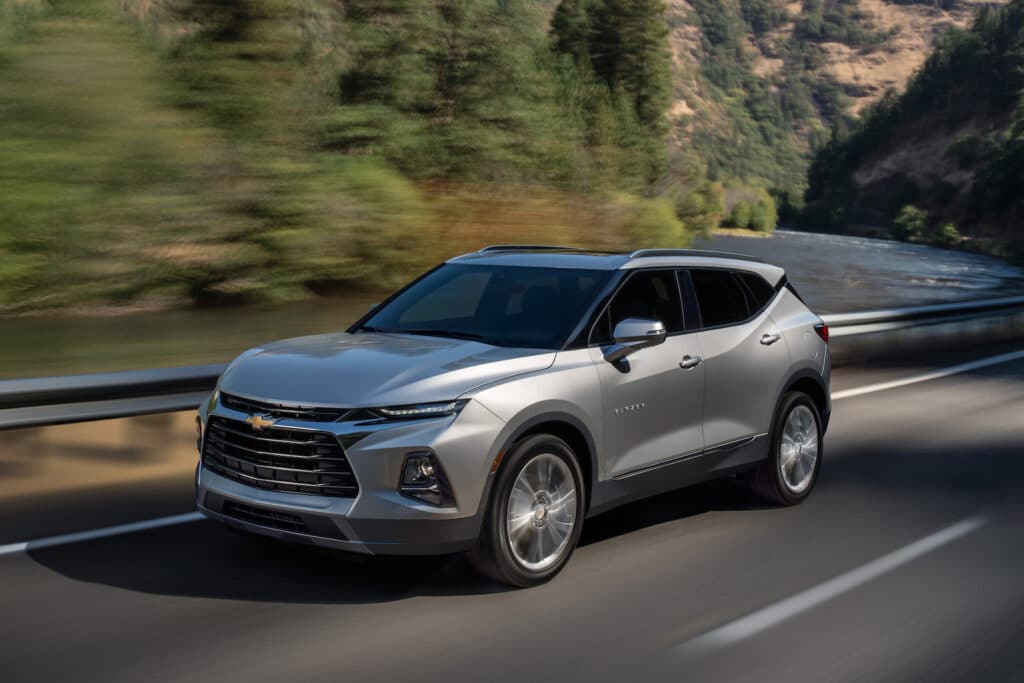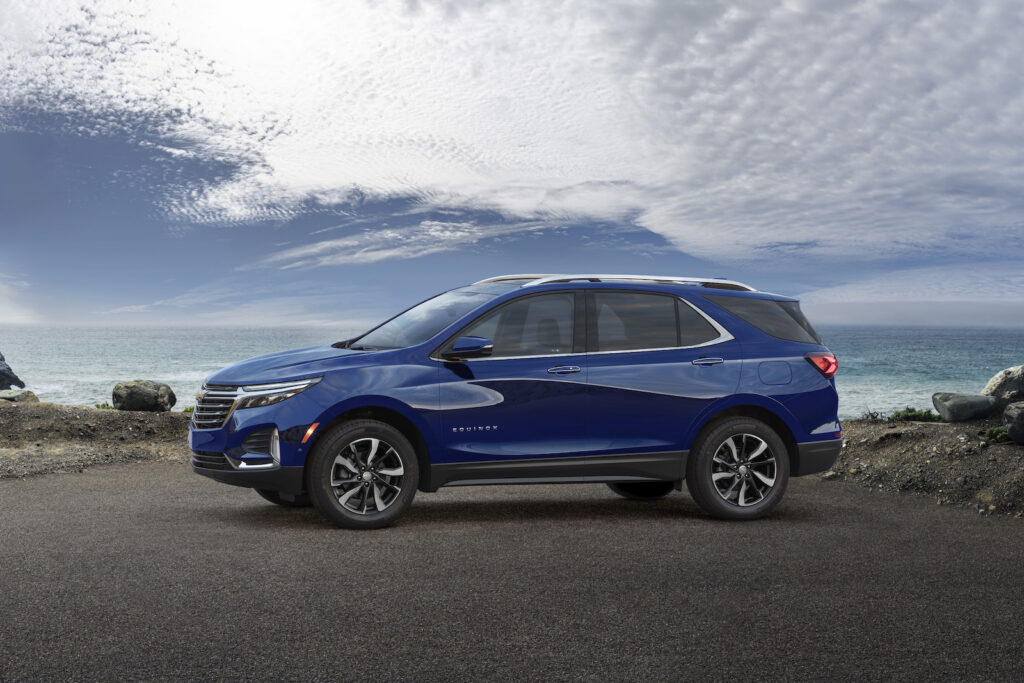General Motors is preparing to add an all-electric Blazer to its product line sooner rather than later, GM CEO Mary Barra told reporters this week.

Barra, during an appearance with the Automotive Press Association in Detroit, said GM is moving ahead aggressively with its plans for electric vehicles. GM will not only build the unique and expensive Hummer EV, which impressed President Joe Biden during a recent visit to Detroit, but also a $30,000 Chevrolet Equinox, Barra said.
The portfolio of 30 electric vehicles GM plans to roll out by 2025 will include not only Hummer but an all-electric version of the midsized Chevrolet Blazer as well, said Barra, who is now scheduled to present GM’s electric pickup truck, the Chevrolet Silverado EV, at the Consumer Electronics Show in Las Vegas on Jan. 3.
“We’re going to go as fast as we can,” added Barra, noting EV projects are being pulled forward at this point.
In the face of stiff competition from the Ford Motor Co., which has logged some 200,000 commitments for its F-150 Lightning EV, Barra said GM is prepared to make a major splash with its own EV pickup in Las Vegas.
“We will show what we can do with an electric truck,” said Barra, adding she remains convinced GM is in a leading position in EV competition even when challenged by new entries such as Lucid and Rivian. “Those are competitors we take very, very serious,” she said.
GM thinks it has an edge

Barra also stressed she is not dismissing the important role Tesla has played in the development of the EV market in the U.S. However, GM can not only build EVs for luxury customers, but also develop and build electric vehicles in every corner of the market by delivering them to consumers of relatively modest means but who need the vehicle to get to work.
The GM CEO, however, declined to comment on Tesla CEO’s Elon Musk’s criticism of the Biden administration plan to help to buyers’ electric vehicles. “I don’t feel its productive to get into a back and forth,” Barra said when asked about Musk’s Twitter comments.
While many tech companies from Silicon Valley are eyeing the huge auto market, Barra believes GM is in a strong position to best them. “This is going to be a really great business,” she said.
“We should be able to do it better,” added Barra, who noted GM not only developed its own robust EV platform, but also has the capacity to build them in its own factories with a skilled and tested workforce.

Just as importantly, GM possesses the scale to produce large number of electric vehicles, which will benefit customers, she said. Ford CEO Jim Farley made the same point earlier in the day during an interview on CNBC.
GM also has developed its own software platform, though it will continue to turn to knowledgeable partners to help with the development in areas such as mapping and voice recognition.
The company’s manufacturing skills are unmatched as the company proved at the beginning of the pandemic in March 2020. At the beginning of the pandemic, Barra said, she challenged the company’s skeptical leadership to build the ventilators, which health experts said were in short supply.
The automaker managed to deliver 30,000 ventilators with a matter of months and the projects helped change the company’s culture. She noted if she’d asked them to do the same with an automotive part, they would have told her it couldn’t be done.

However, she noted the urgent nature of the project — something that could save a family member’s life — changed their perspective about what was possible. She said as a result, the company is prepared to move at “ventilator speed,” when necessary.
GM’s value
Barra also reiterated she believes GM’s stock is undervalued.
“Sometimes the iconic, traditional company, even though they’re innovating quickly, gets looked at with a different lens,” she said.
China remains a critical market for GM even as tensions between People Republic of China and the United States steadily escalate, Barra said. But GM’s business in China is self-sustaining and GM has taken steps such as a major investment in a Chinese company developing self-driving technology.
The fact is concerns about privacy and data require development separate from that headed by Cruise, GM’s autonomous vehicle subsidiary in the United States, she noted.







